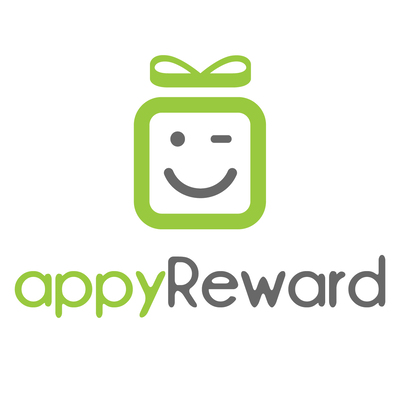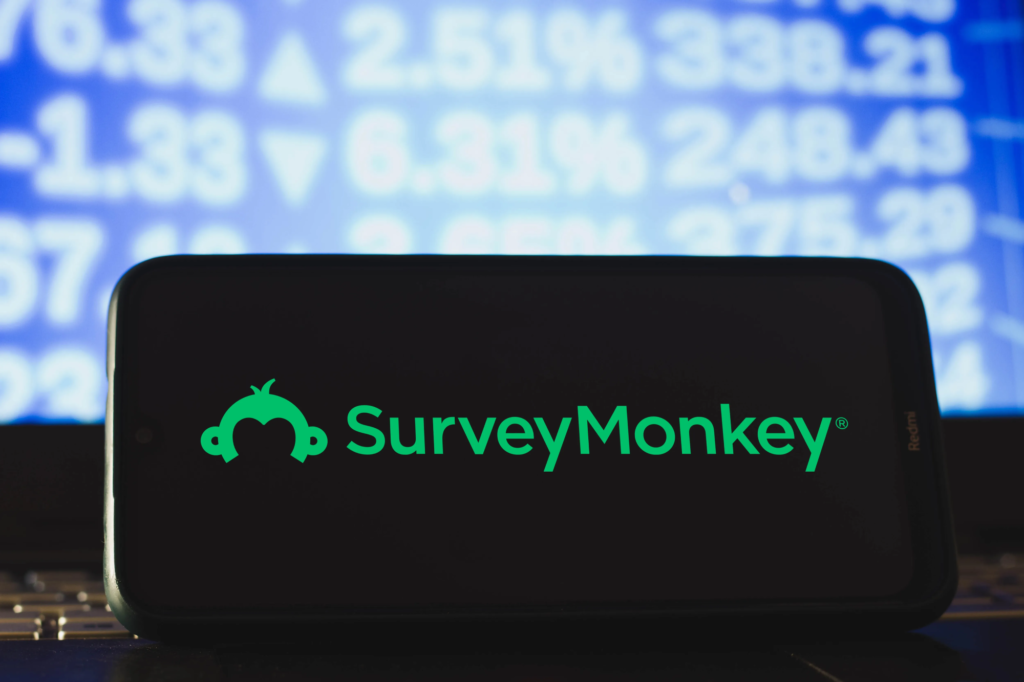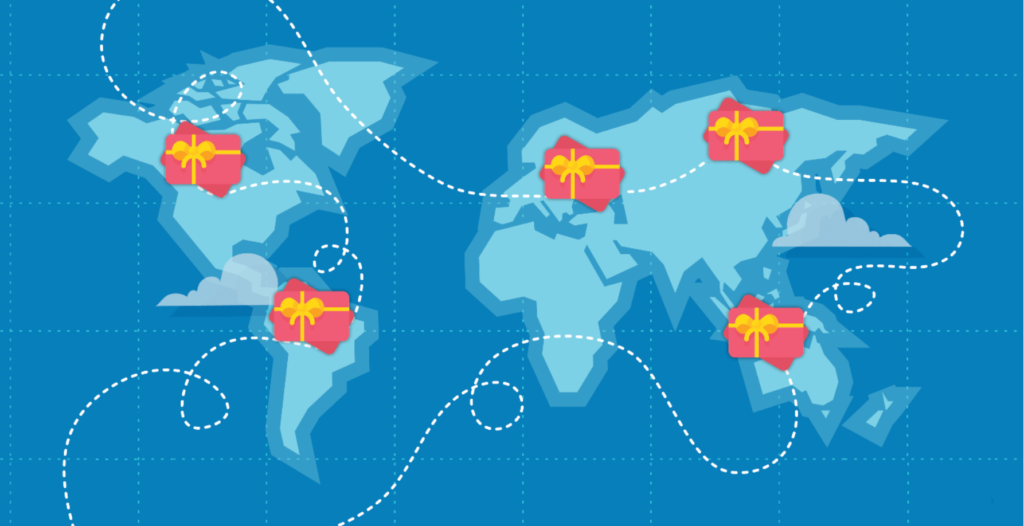
In the ever-changing landscape of market research and surveys, incentives have risen in prominence, recognized by market research agencies, businesses, and academia as vital for enhancing both response rates and the quality of responses.
Recent research published in PLOS One underscores the efficacy of incentives in increasing response rates, regardless of the specific incentive method.
Gift cards have become a widely adopted strategy to enhance survey response rates, making them a popular choice.
Regardless of your field—research, business, or academia—unlocking more insights and participation is within reach. Join us on the journey to maximize your survey potential.
Choosing the Perfect Survey Incentives for Maximum Survey Rewards
When it comes to conducting surveys, one of the critical decisions you’ll need to make is selecting the right incentives for your respondents. The incentives you offer can significantly impact the success of your survey, affecting response rates, data quality, and your overall budget.
Step 1 – Fine-Tuning Survey Incentives for Optimal Results
The choice of incentives can significantly impact participation and response quality. To make this choice wisely, consider the following factors:
Survey Duration: Evaluating Time Investment
Determining the appropriate incentive starts with assessing the duration of your survey. As a rule of thumb, longer surveys demand more substantial incentives. This acknowledges the increased commitment expected from respondents in lengthier surveys. For instance, a 20-minute survey merits a more generous incentive than a concise 10-minute counterpart.
Question Complexity: Navigating Complexity
The complexity of your survey questions is another key aspect to factor in. Simple surveys, primarily comprised of closed-ended questions, are less demanding on participants. In contrast, intricate surveys with complex tasks like concept testing or pricing inquiries can lead to survey fatigue and higher dropout rates. Recognizing this level of effort is essential when crafting incentives.
Topic Appeal: Captivating Subjects
The subject matter of your survey can significantly influence participant motivation. Surveys exploring captivating topics, such as new product concepts or current events, often evoke intrinsic interest, reducing the need for substantial incentives. This is because participants are naturally motivated when the subject aligns with their personal interests.
Framing and Objectives: Crafting a Persuasive Narrative
The way you present your survey’s purpose to participants matters. Clearly articulating how participant feedback will be used and how it benefits them is crucial. Consider the additional incentive of sharing survey results, especially in B2B research. Participants appreciate knowing that their input contributes to improvements or changes. Sharing survey outcomes can serve as an extra motivator, enhancing participant engagement.
Step 2 – Determining the Appropriate Budget
To ensure your survey’s success, it’s essential to carefully consider various factors when choosing the right incentive. Incentives play a pivotal role in motivating survey participants and affecting response quality. By harmonizing your incentives with these crucial elements, you can boost participation and elevate the quality of responses, ultimately contributing to the success of your survey.
Determine the Optimal Survey Population Size
Before delving into the world of incentives, you must have a clear understanding of your desired sample size. Ask yourself, how many completed surveys are you aiming to collect? Your target audience’s size is a fundamental factor in determining the type and value of incentives you should offer, and it directly influences your survey’s overall rewards.
If you anticipate a low response rate, it’s prudent to plan for a response rate in the single digits. In situations where you need more than 5% of your audience to complete your survey, consider offering a higher incentive value or experimenting with different values before officially launching your survey.
Balance Your Budget and Timeline for Optimal Survey Rewards
Your budget and timeline are significant considerations when selecting the right survey incentives to maximize your survey’s rewards.
- Budget: If you have budget constraints, it’s advisable to set your incentive based on the estimated number of responses you expect to receive. It’s often a good practice to begin with a lower incentive and adjust it upward if necessary, depending on your budget limitations. To prevent exceeding your budget, it’s essential to set a limit on the total number of survey responses. For example, if you have a $500 budget for incentives and aim to offer $10 per completion, your budget can cover 50 completions. However, if your goal is 250 completions, you might need to reduce the incentive to $2 per completion, introduce a sweepstake, or offer a non-monetary alternative – all of which can have an impact on your survey rewards.
- Timeline: Your survey’s timeline is another crucial factor to consider. If you have several weeks to conduct your survey, starting with a lower incentive and gradually increasing it if you don’t achieve your desired response rate is a viable strategy. On the other hand, if you have a tight deadline, offering a more substantial incentive from the beginning is the best approach to ensure maximum survey rewards.
| Aspects | Enhance Incentive Value | Diminish Incentive Value |
|---|---|---|
| Survey Characteristics | Prolonged Surveys (20+ minutes) | Brief Surveys (< 10 minutes) |
| Intricate Question Types Requiring Deliberation | Simple and Easy-to-Answer Questions | |
| Limited Interest in the Survey Subject | High Interest in the Survey Subject | |
| Ambiguous Framing and Objectives | Clear Framing and Objectives | |
| Audience Characteristics | Demographics: Challenging to Reach/B2B Audiences | Easily Accessible/General Audience |
| No Prior Connection with Respondents | Preexisting Connection with Respondents |
Considering Different Scenarios for Enhanced Survey Rewards
After taking into account the sample size, budget, and timeline, it’s time to decide on the right incentive for your survey and target audience to maximize survey rewards. Here are some examples of survey incentives for different scenarios:
Scenario 1:
- Survey: A 15-minute customer segmentation survey
- Audience: Current online consumers
- Respondent List: You have 5,000 email addresses, and you anticipate a response rate of 10-15%.
- Sample Size: Your goal is to gather a minimum of 300 completed surveys.
- Budget and Timeline: Your incentive budget is set at $2,500, and you plan to run the survey for 3-4 weeks.
- Incentive: Offer a $10 cash reward or a gift card, with the possibility to adjust it after the first week if needed.
Scenario 2:
- Survey: A 30-minute patient care survey.
- Audience: Registered Pediatric Nurses.
- Respondent List: You have 8,000 email addresses, but there is no estimated response rate.
- Sample Size: Your goal is to collect a minimum of 300 completed surveys.
- Budget and Timeline: You have one week to administer the survey with a $12,000 incentive budget.
- Incentive: Given the survey’s length, the specific audience, uncertain response rate, and tight timeline, you opt to offer the maximum allowed by your budget: a $60 cash reward or a gift card offered to the first 300 participants.
Scenario 3:
- Survey: A 10-minute viewer feedback survey.
- Audience: Recent subscribers to a video streaming service.
- Respondent List: You have 100,000 email addresses available each month, with an estimated 2% response rate.
- Sample Size: You aim to gather a minimum of 2,000 completed surveys per month.
- Budget and Timeline: The survey is ongoing for a year with a $3,000 monthly incenBLOGtive budget.
- Incentive: Considering the size of your respondent list, the monthly sample size, and your budget constraints, you choose to offer a chance to win 1 of 10 monthly $300 cash prizes.
Step 3 – Choosing the Right Survey Incentive
Choosing the Right Survey Incentive: Types and Strategies
Selecting the appropriate survey incentive is a pivotal decision in survey design. The choice of incentive can significantly influence both survey participation and the quality of responses. To facilitate this decision-making process, we offer an extensive overview of various incentive types, their potential applications, and practical examples. Additionally, we emphasize the value of the versatile “Tango Reward Link” option, which empowers recipients to select their preferred brand, introducing a layer of personalization to the incentive. Opting for the right incentive can elevate respondent engagement and enhance the overall success of your survey. Delve into the options below to tailor your incentives effectively to your specific audience and research objectives.
Types of Survey Incentives
- Monetary Incentives: Cash rewards or gift cards are a popular choice, providing recipients with flexibility and immediate value.
- Non-Monetary Incentives: These can include physical gifts, discounts, or exclusive access to content or events.
- Tangible Incentives: Items like gadgets, apparel, or merchandise related to your survey’s theme can be enticing.
- Charitable Donations: Allowing respondents to support a cause they care about can be a meaningful incentive.
Incentive Strategies
- Know Your Audience: Understand your target demographic’s preferences and motivations to select an incentive that resonates with them.
- Consider Survey Length: Longer surveys may require more substantial incentives to maintain participant interest.
- Budgetary Considerations: Align your incentive choice with your budget, ensuring you can offer a compelling reward without overspending.
- Testing and Adjusting: Be open to experimenting with different incentives and adjusting them based on response rates and participant feedback.
- Personalization: Offering a choice, like the “Tango Reward Link,” allows recipients to select rewards that matter to them.
- Timing: Offer incentives at the right moment, whether it’s before, during, or after survey completion, to maximize their impact.
| Incentive Type | Scenarios | Survey |
|---|---|---|
| Financial Rewards | Visa/Mastercard prepaid gift cards: Suitable for a wide audience, including international participants, as they can be used in most countries. | A market research survey targeting smartphone users to understand their preferences in mobile apps and features. |
| E-commerce gift cards | Amazon or other e-commerce gift cards. Including the versatile Tango Reward Link option, allowing recipients to select the brand of their choice. (Ideal for various audiences, as the flexibility of brand choice appeals to them) | An online poll aimed at college students, exploring their preferences and habits related to study and productivity apps. |
| Sweepstakes | When dealing with a substantial number of respondents or when budget constraints prevent offering incentives to everyone. | – An opinion survey conducted with homeowners who recently completed a home renovation project. |
Maximizing Survey Rewards through Incentive Strategy
Survey incentives don’t follow a one-size-fits-all formula. Embrace the path of experimentation to enhance your survey rewards. If you’re uncertain about the most suitable incentive, consider testing different options with a small subset of respondents before your full-scale survey launch. This method provides valuable insights into your incentive strategy’s effectiveness, allowing you to refine your choices for a broader audience. Remember that exploring various incentive amounts and types equips you with the knowledge needed for informed decisions in future surveys, ultimately boosting your survey rewards.
Choosing the right survey incentives is crucial for the success of your survey and the attainment of maximum rewards. By carefully analyzing factors like sample size, budget constraints, and timelines, and by being open to experimentation, you can fine-tune your incentive strategy for the best results in your specific survey and target audience. This meticulous approach results in an enriched survey experience, ultimately leading to enhanced rewards.
Transforming Survey Incentives with appyReward: Tailor-Made Campaigns for Better Responses!

Unlock the power of appyReward, seamlessly integrated with popular survey platforms including SurveyMonkey, Jotform, Typeform, Qualtrics, Google Forms, and Zapier.
With appyReward, you can effortlessly create engaging reward campaigns that motivate survey respondents. Choose from various campaign options, including Giveaways for rewarding every participant, Sweepstakes to reward lucky winners, and a comprehensive Gift Card Catalog featuring Digital Prepaid cards and the versatile Tango Reward Link.
Try appyReward now for free and transform your survey incentives into an enticing experience!
Tailor your incentives to your audience and transform your survey experience. Try appyReward now for free!


